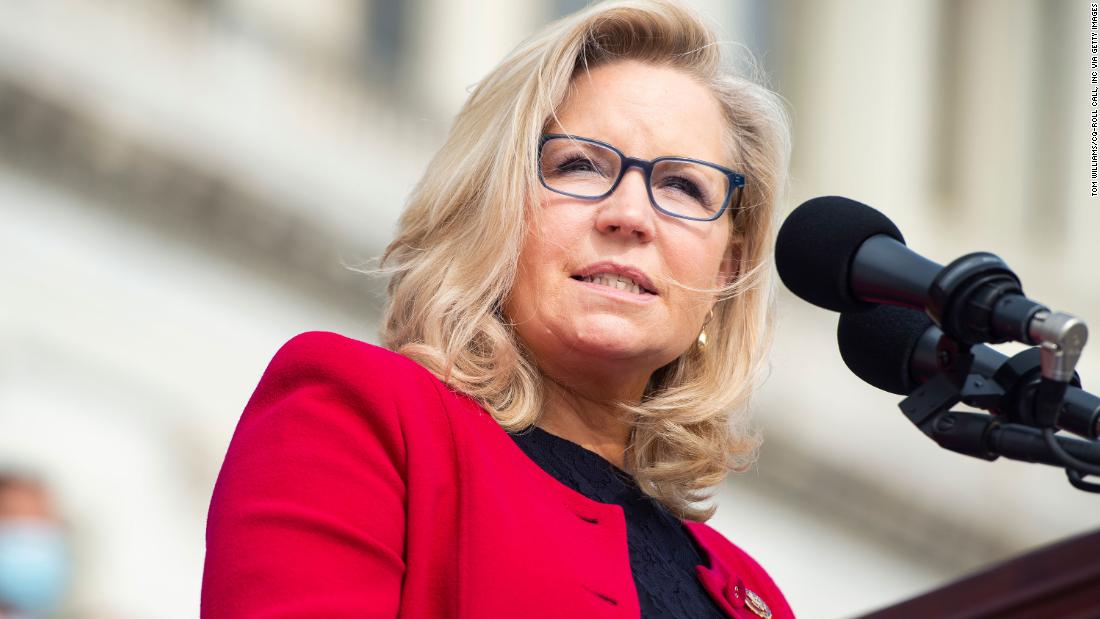Cheney, the last of the 10 House Republicans who voted for Trump’s second impeachment to face voters, now becomes the eighth who will not be returning to Congress next year.
Despite her conservative credentials and party pedigree, her role as Trump’s chief GOP critic on Capitol Hill made her a heavy underdog in a state the former President won with nearly 70% of the vote in 2020. His enduring popularity there, coupled with Cheney’s role as vice chair of the House select committee investigating the January 6, 2021, attack on the US Capitol, made the three-term congresswoman and daughter of former Vice President Dick Cheney a top target of Trump allies.
Trump’s grip on the GOP has been proven again and again since he left Washington. But Cheney’s loss, though widely anticipated, represents a significant marker in the wider fight over the direction of the Republican Party. Once considered an up-and-comer in the party, she was booted from House GOP leadership last year over her unyielding opposition to the former President and trailed in polling back home this year.
With Wyoming’s vote in, Cheney becomes the fourth House Republican who voted to impeach Trump to lose her primary. Four others were not running for another term. The two survivors to date, in California and Washington, benefited from their states’ nonpartisan primary system. Cheney had no such cushion, though a late push for Democrats and independents to register for the GOP primary might have somewhat softened the ultimate count.
Leading Republicans on Capitol Hill had coalesced around Hageman, who has embraced Trump’s false election fraud claims and called the 2020 contest “rigged.” House Minority Leader Kevin McCarthy, another Hageman supporter, on Monday said during an appearance on Fox News that the election in Wyoming was “going to be a referendum on the January 6 committee.”
Cheney’s focus on the committee’s work and her unwavering commitment to, in her words, doing “everything I can to ensure that (Trump) never again gets anywhere near the Oval Office,” set her apart from the small band of GOP colleagues who also voted for impeachment and are running for reelection. What her pledge entails, in practice, remains to be seen, but chatter about a 2024 presidential run has already begun.
“The lie that the 2020 presidential election was stolen is insidious. It preys on those who love their country,” Cheney says. “It is a door Donald Trump opened to manipulate Americans to abandon their principles, to sacrifice their freedom, to justify violence, to ignore the rulings of our courts and the rule of law. This is Donald Trump’s legacy — but it cannot be the future of our nation.”
Cheney is expected to amplify that message when she addresses supporters Tuesday night, advisers told CNN’s Jeff Zeleny — declaring that she is only at “the beginning of the battle,” even if this one is lost.
Cheney advisers said she will not definitively address the speculation over a presidential bid, but may provide some clarity about her near-term plans, which could include forming a super PAC to support anti-Trump conservative candidates or establishing a think tank to counteract Trumpism’s ascent within the party.
The outcome of the primary, she plans to say in a speech she has worked on with her parents, is one she will wear as a “badge of conviction,” according to advisers.
Sarah Palin looks to make a comeback in Alaska
Palin, who resigned as governor in 2009, is squaring off in the special election with Nick Begich III, the Republican scion of the state’s most storied Democratic family, and former Democratic state Rep. Mary Peltola, who was endorsed by independent Al Gross after he dropped out of the race despite making the final four. If none of the three active candidates secures a majority of the vote, the election will be decided with a ranked-choice calculation that begins at the end of the month.
The three special election contenders — along with nearly 20 other candidates, most notably Republican Tara Sweeney — are also running in a concurrent primary that will determine the four finalists for the November election that will decide who will win the at-large House seat for the next full term.
GOP senator who voted to convict Trump faces voters
While Cheney’s fate in Wyoming has grabbed the most headlines, Alaska Sen. Lisa Murkowski, a Republican who voted to convict Trump during his second impeachment trial, is also facing new competition this year fueled by her lack of fealty to the former President. Unlike Cheney, however, Murkowski — herself the latest in a proud statewide political dynasty — is a better bet to overcome the forces arrayed against her.
That’s in large part due to Alaska’s nonpartisan top-four primary, which, like in the House race, sends the top four candidates to the general election, which will be decided by a ranked-choice vote if no one receives a majority. That process should aid Murkowski against Trump-backed challenger Kelly Tshibaka, the former commissioner of the Alaska Department of Administration.
Murkowski has in the past enjoyed broad support, across partisan lines, in a state that elected her father, Frank Murkowski, first to the Senate and then as its governor. He then appointed his daughter to her current position in 2002. When she was defeated in a 2010 primary during the tea party wave, Murkowski launched a write-in campaign and defeated GOP nominee Joe Miller in the fall.
The state’s gubernatorial primary also features some familiar names: Republican Gov. Mike Dunleavy and independent former Gov. Bill Walker, who likely would have lost to Dunleavy in his 2018 reelection bid had he not dropped out shortly before the election and endorsed Democrat Mark Begich.
Dunleavy, now seeking a second term, won the one-on-one contest by less than 10 points.








More News
Parts of Gaza in ‘Full-Blown Famine,’ U.N. Aid Official Says
Charges Against a Congressman Lay Bare Foreign Government Influence Attempts
Last of Escaped Zebras Captured With White Bread, Oats and ‘Positivity’